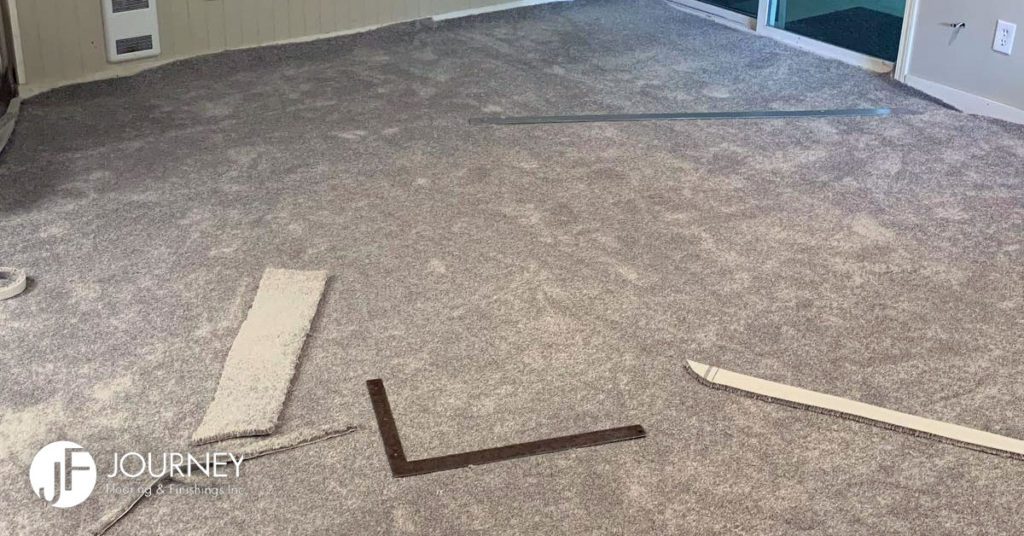Differences Between Nylon Carpet and Polyester Carpet
Carpeting can be a great way to add warmth, comfort, and style to your home. However, with so many different types of carpet available, it can be tough to know which one is right for your needs. Two of the most popular carpet fibers are nylon and polyester. In this article, we’ll explore the differences between nylon carpet and polyester carpet, and which one might be the better choice for your home.

Durability and Stain Resistance
When it comes to durability, nylon carpet is the clear winner. Nylon is a strong and durable fiber that can withstand heavy foot traffic, making it an ideal choice for high-traffic areas like hallways and staircases. Nylon is also more resistant to stains and spills than polyester, thanks to its ability to repel water and resist fading from exposure to sunlight.
Polyester carpet, on the other hand, is less durable than nylon and may not hold up as well in high-traffic areas. However, it is more stain-resistant than nylon and is less likely to absorb spills and stains, making it a good choice for homes with kids or pets.
Softness and Comfort
Both nylon and polyester carpet can be soft and comfortable underfoot, but polyester carpet tends to be softer than nylon. Polyester fibers have a natural crimp that gives them a plush, luxurious feel, making them a great choice for bedrooms or areas where you want a cozy, comfortable atmosphere. Nylon carpet, on the other hand, can feel more firm and dense underfoot, which can be beneficial for areas where you want more support, such as a home office or playroom.
Color and Style
When it comes to colour and style, both nylon and polyester carpet offer a wide range of options. However, because polyester fibres are more stain-resistant, they tend to retain their colour better than nylon, making them a good choice if you want a carpet that will maintain its colour over time. Polyester fibres also tend to have a higher lustre than nylon, which can make them look more vibrant and shiny.
Nylon fibres, on the other hand, have a more matte finish, which can give them a more subdued, natural look. Nylon carpet is also available in a wider range of styles, including looped and textured styles, which can create a unique, custom look in your home.
Environmental Impact
If you’re concerned about the environmental impact of your carpeting, you may want to consider the differences between nylon and polyester fibres. Nylon is a petroleum-based fibre, which means that it is made from non-renewable resources. However, many manufacturers are now using recycled materials to create nylon fibres, which can help reduce its environmental impact.
Polyester, on the other hand, is made from recycled materials, including plastic bottles, making it a more environmentally-friendly option. However, the production process for polyester fibres does require a lot of energy, which can contribute to greenhouse gas emissions.
Which Carpet Is Better?
So, which carpet is better – nylon or polyester? The answer depends on your specific needs and preferences. If you’re looking for a carpet that is durable and stain-resistant, nylon may be the better choice. If you want a carpet that is softer and more comfortable, polyester may be the way to go. If you’re concerned about the environmental impact of your carpeting, you may want to consider the recycled content of the fibres.
Ultimately, the best way to determine which carpet is right for your home is to consider your specific needs, budget, and style preferences. We encourage you to consult with Journey Flooring and our flooring professionals to help you make the right choice and determine the differences between nylon carpet and polyester carpet. With the right carpeting, you can create a comfortable, stylish, and functional space that you and your family will love for years to come.
Please visit our Langley flooring showroom at 102-6270 205 St. in Langley, to chat with our team of flooring experts about your project. You can also call Journey Flooring directly at 604-427-2020 or fill in this short form to connect.
